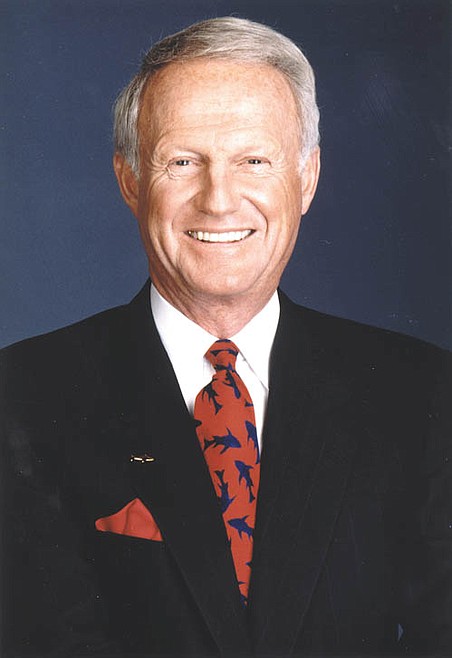The joy of public speaking
A political candidate's wife dropped heavily into an easy chair at home, kicked off her shoes and sighed, "Boy, what a day. I've never been so tired in my life."
"Why should you be tired?" growled her husband. "Think of me making seven speeches to voters. You didn't have to do that."
"That's right," agreed the weary wife, "but remember, I had to listen to them."
Public speaking is one of my favorite pastimes — and it should be, considering all the speeches I've given over my lifetime. I'm often asked for advice on making effective and interesting presentations. Seems a lot of folks out there are fairly terrified at just the thought of speaking in public. Let me share a little secret: It wasn't always easy for me either.
The day after I graduated from the University of Minnesota, my father, Jack Mackay, pushed me to join King Boreas Toastmasters in St. Paul, the oldest Toastmasters club in the United States.
This October, Toastmasters International will celebrate its 100th anniversary, and now boasts a membership of more than 364,000 in 16,600 clubs in 143 countries. Many formerly red-faced, white-knuckled speakers owe a debt of gratitude to Toastmasters, a club whose main purpose is to help members hone their public-speaking skills.
Along with that, members learn about preparation, appearance, self-confidence, self-esteem and thinking on their feet … or how to be interesting. Toastmasters can help anyone in any profession because those skills are in universal demand. And with surveys showing that public speaking ranks at the top of the list of fears — even above death — a little refresher course is in order. You can reach Toastmasters at www.toastmasters.org.
Many of my good friends on the knife-and-fork circuit in the National Speakers Association tell me they are asked the same question over and over again: How can you stand up there and do that?
We all know the secret: Practice.
You don't start at the top and work your way up in public speaking. Has anyone pulled on a pair of ice skates for the first time and the next day won Olympic gold? Of course not. But I want to drive home a point: Great speakers are made, not born.
Public speaking is a performance. All performances generate angst and trepidation. Every actor, writer, comedian, musician, athlete, lecturer and magician can tell you all about performance anxiety.
The idea is not to get rid of your nerves. The idea is to convert them into energy.
How do you do this? You practice. You start small. You stand up and lead a discussion group for your department. You take speaking engagements with industry groups, civic associations, community groups and charity organizations. You oblige teachers if they ask you to discuss your profession in their classrooms.
Here's another secret: If you do become an accomplished speaker and no longer feel butterflies before you speak, get out of the game. You've lost your edge. You won't be any good at it anymore.
I have a very useful tool to make speech-making easier. It's called the Mackay 35 to Stay Alive. It's one of many handouts that are available free on my website, www.harveymackay.com. Here are some of the most important points.
The most important are the first three:
1. Room size.
2. Room size.
3. Room size!
If 100 people are going to attend, the room should seat 75. If 500 people are expected, the room should hold 400. You want the excitement of a standing-room-only, bumper-to-bumper crowd to build chemistry.
Another hint: Set the podium back a few feet from the audience so you can walk in front of it. You want to create intimacy with the group at critical moments.
Ask your introducer to request politely that the people with their backs to the stage stand up and turn their chairs forward so they can see you better without distractions. Introducers are critical. Always try to have a real pro introduce you. Be wary of someone who is a poor speaker being given this honor.
Outside noise from the adjoining rooms and hallways is the No. 1 killer of meetings. If you can't hear a pin drop, you're in the wrong room.
And finally, make sure you have a spectacular ending. Summarize with a memorable phrase or two to wrap it up. As P.T. Barnum said, "Always leave them wanting more!"
Mackay's Moral: The person who rises to the occasion should know when to sit down.
• • •
Harvey Mackay is the author of the New York Times bestseller "Swim With the Sharks Without Being Eaten Alive." He can be reached through his website, www.harveymackay.com, by emailing harvey@mackay.com or by writing him at MackayMitchell Envelope Co., 2100 Elm St. SE, Minneapolis, MN 55414.

